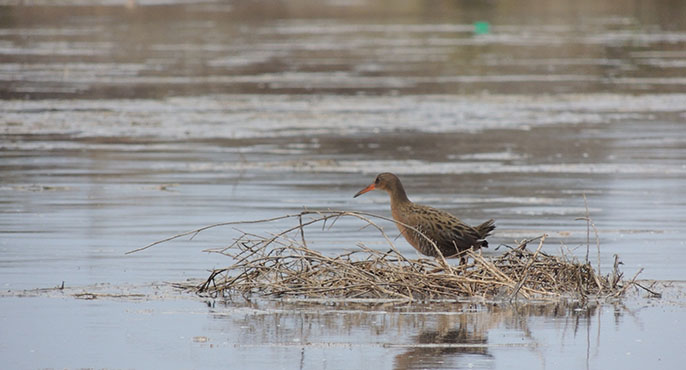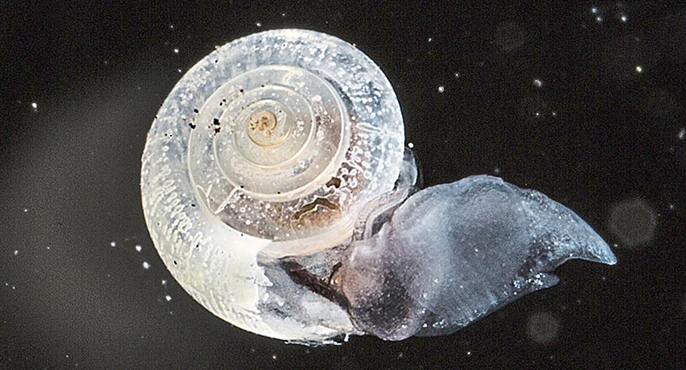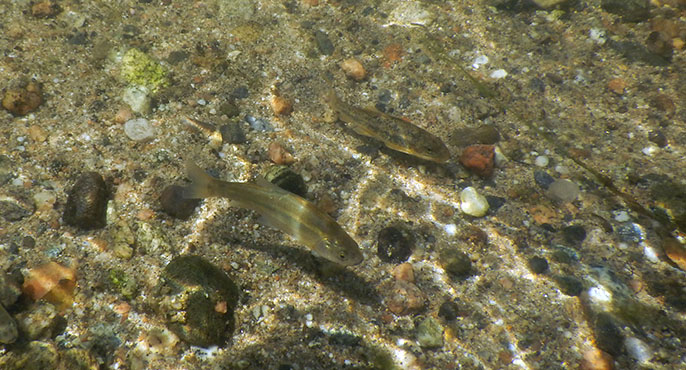![]() Climate change has presented researchers with a wide variety of opportunities to track, predict and explore the societal and environmental implications of a changing planet. Around the world, climate change researchers are monitoring carbon dioxide levels in the atmosphere, modeling how weather and rainfall patterns are changing, and projecting impacts to natural resources and human communities many decades into the future. In the aquatic sciences discipline, researchers are focused on understanding how water bodies of all kinds are being altered by changing environmental conditions, and how the diverse plant and animal communities they support are impacted by these changes.
Climate change has presented researchers with a wide variety of opportunities to track, predict and explore the societal and environmental implications of a changing planet. Around the world, climate change researchers are monitoring carbon dioxide levels in the atmosphere, modeling how weather and rainfall patterns are changing, and projecting impacts to natural resources and human communities many decades into the future. In the aquatic sciences discipline, researchers are focused on understanding how water bodies of all kinds are being altered by changing environmental conditions, and how the diverse plant and animal communities they support are impacted by these changes.
SCCWRP is part of a global community of researchers working to connect rapidly growing knowledge about the physical manifestations of climate change to aquatic ecosystem responses. SCCWRP focuses on building and strengthening environmental monitoring programs that inform decision-making and long-term planning by California’s environmental management community. SCCWRP also focuses on computer modeling to simulate how climate change will impact the health, distribution and resiliency of vulnerable aquatic species. SCCWRP’s goal is to provide California environmental managers with viable, cost-effective strategies and tools for mitigating and offsetting climate change’s ecosystem impacts.

Studying ecosystem impacts
Combatting climate change in the water-quality management community starts with reducing one’s own carbon footprint – but the work doesn’t end there. California’s water-quality management agencies also are pursuing a wide array of focused opportunities to more effectively mitigate the impacts of climate change on local ecosystems.
SCCWRP’s climate change research program is built around informing how managers can optimally respond to the aquatic ecosystem impacts of climate change. This work focuses on four main areas, all of which have rising greenhouse gas emissions as their root cause:
- Altered hydrological flow patterns: Researchers are examining how changing rainfall and runoff patterns, drought cycles, and changing water use and reuse practices are impacting efforts by California’s water resources management community to optimally protect the environmental flows that sustain aquatic ecosystems.
- Sea level rise: Researchers are exploring how vulnerable animals and plants in coastal wetlands and other low-lying habitats will be impacted by rising sea levels in the coming decades, and how California’s coastal resources management community can use these insights to protect sensitive species and preserve maximum ecological functioning.
- Warming waters: Researchers are examining how toxic cyanobacterial blooms and other nuisance species – which are becoming more common as waters warm – threaten both public and ecosystem health, and how to design long-term management strategies and improved monitoring programs to combat this emerging threat.
- Ocean acidification and hypoxia: Researchers are documenting how corrosive coastal ocean conditions and low dissolved oxygen levels threaten the health of marine food webs, and how California’s water-quality management community can better control and manage human activities on land to mitigate ecological impacts at sea.

Connecting climate science to management
SCCWRP deliberately does not focus its research on measuring and modeling the physical manifestations of climate change in aquatic environments. SCCWRP’s expertise is in understanding the ecological impacts of environmental change and translating these insights into actionable options and recommendations for the water-quality management community.

